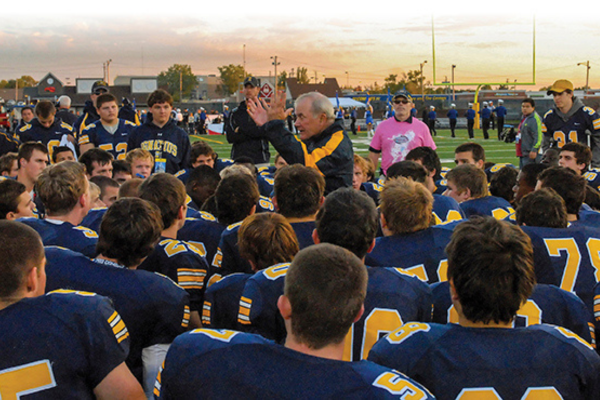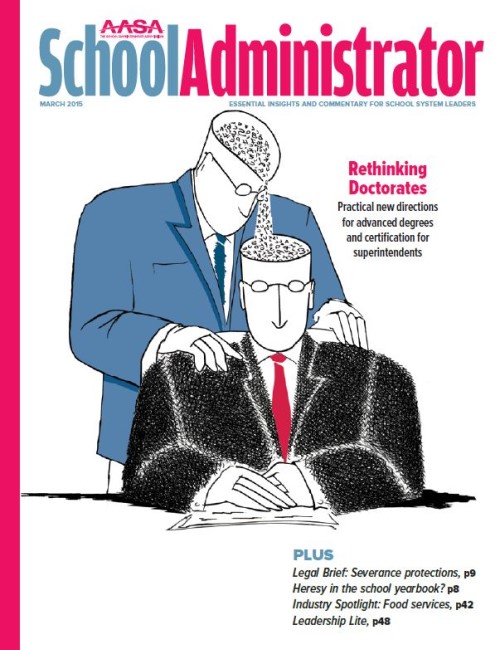April 2023: School Administrator

This issue examines the future of school athletics and the role sports play in school culture.
Advertisement
Additional Articles
-
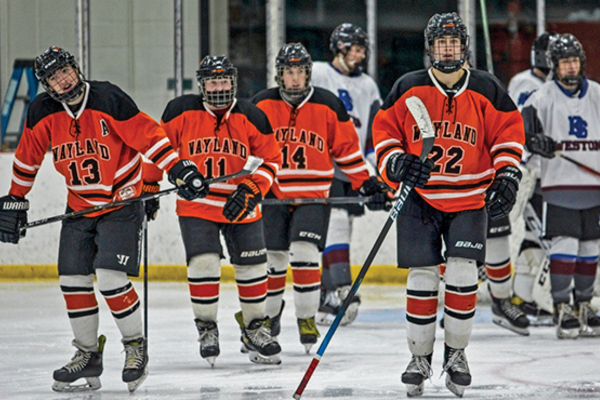 Righting the Competitive Imbalance in Athletics
Righting the Competitive Imbalance in AthleticsEducation leaders and state athletics officials pursue measures to reduce the widening impact of socioeconomic factors on game outcomes.
-
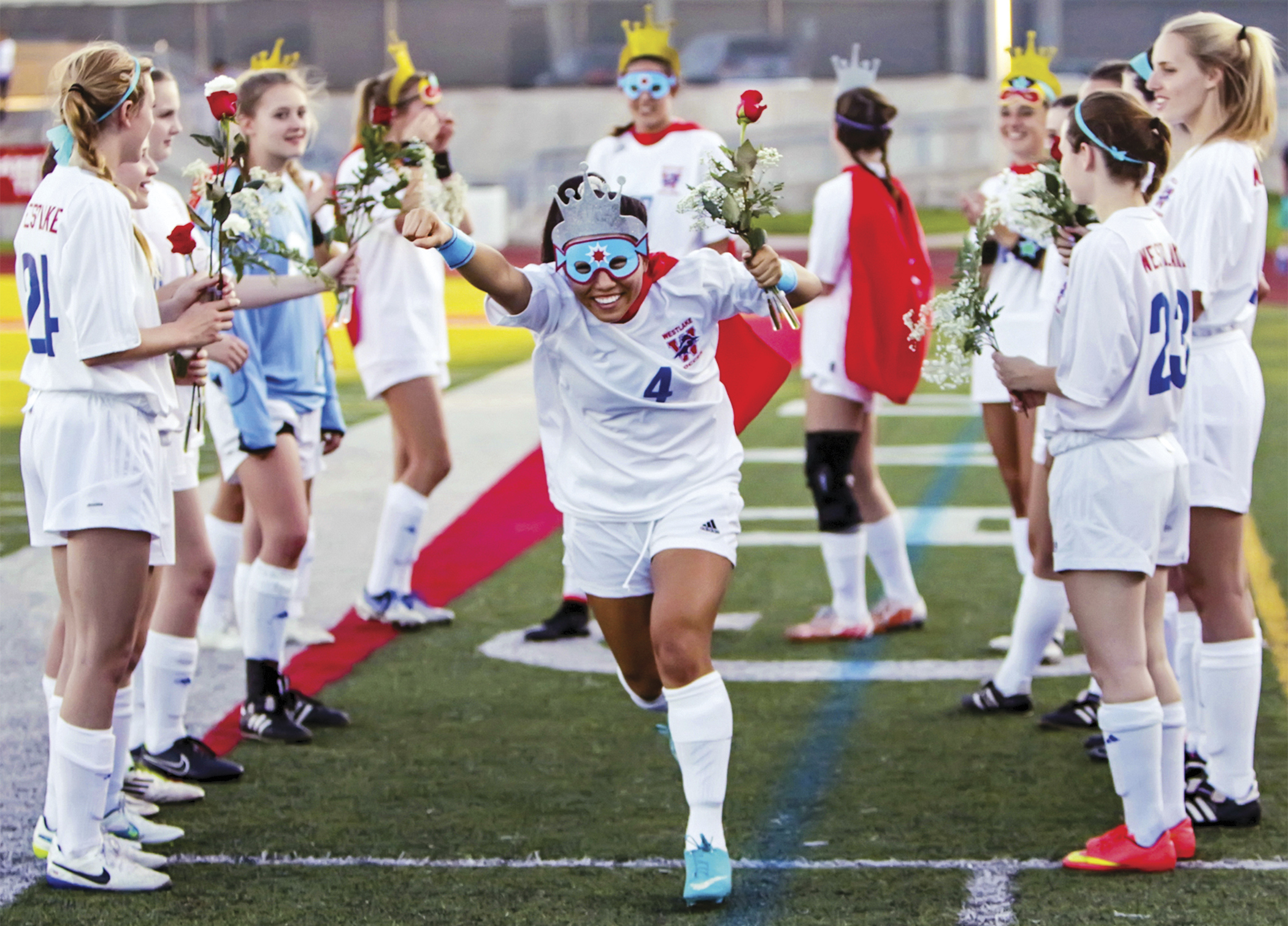 Acting in the Best Interests of Gender Equity in Athletıcs
Acting in the Best Interests of Gender Equity in AthletıcsSome school districts don’t need the threat of litigation under Title IX to ensure fair funding and support of girls’ and boys’ sports programs.
-
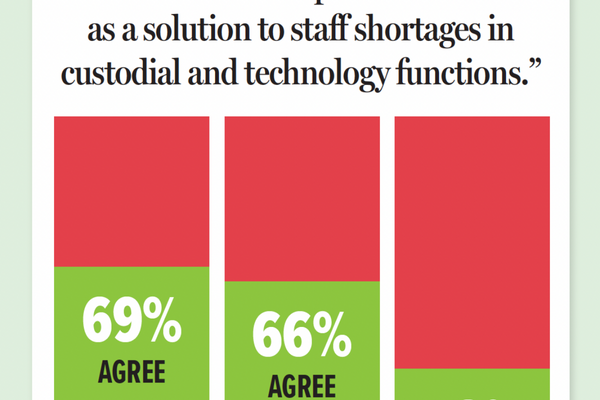 Robots to the Rescue
Robots to the RescueDo superintendents believe automation could solve staff shortages?
-
 A Rock of a Hard Place
A Rock of a Hard PlaceOur panel analyzes a superintendent’s handling of a protest after students are disciplined for painting “Black Lives Matter” on a boulder.
-
 Parental Demands To Impact Teaching Material
Parental Demands To Impact Teaching MaterialWhat are public schools mandated to teach, and what opt-outs need to be available for families?
-
 Helping Your Board Hire an Interim Leader
Helping Your Board Hire an Interim LeaderThe outgoing superintendent can play a role in helping board members select a temporary replacement.
-
 Courage and Its Connection to Trust
Courage and Its Connection to TrustFive considerations for building working relationships with constituents in your school community.
-
 Naming Rights Deals Containing Two-Way Benefits
Naming Rights Deals Containing Two-Way BenefitsHow a school district generated $300,000 through sponsorships tied to school facilities.
-
 Getting a Delicate Process Right When Renaming Schools
Getting a Delicate Process Right When Renaming SchoolsHonoring namesakes on buildings means acknowledging inequities and recognizing contributions from people of color.
-
.png?sfvrsn=2c854cfb_9) Nurturing Students Wherever They Are
Nurturing Students Wherever They AreInterscholastic athletics and other extracurriculars bring students together and benefit the whole child.
-
 Creating Lifelong Interests
Creating Lifelong InterestsThe skills and passions that sports cultivate in students beyond their high school years.
-
 Opportunities Through Future-Focused Curriculum
Opportunities Through Future-Focused CurriculumEighth in a series about AASA demonstration districts spotlights the Coxsackie-Athens Central School District in upstate New York.
-
 Tackling Difficulty With a Soft Heart
Tackling Difficulty With a Soft HeartThe superintendent in Mason, Ohio, spends plenty of time on the front lines.
Staff
Editor's Note
Games With Serious Outcomes
When it comes to the incredibly wide jurisdiction over which the typical superintendent presides, does any area receive less critical attention than interscholastic athletics? Not in my mind, which is why at School Administrator we’ve periodically delved into the fun and games of athletic extracurriculars to examine some serious aspects.
Our purpose is not to question the added value school-based sports bring to secondary school students and their communities. But too often, superintendents’ attention is fixated on more immediate needs of schools’ management and operations, driven these days by loud voices from the outside. This leaves important questions relating to interscholastic athletics often unasked or less seriously addressed until a crisis might emerge.
Our focus this month touches on the provocative, asking whether a learning organization that pledges to keep students safe in body and mind ought to commit in the long term to supporting tackle football. Politically fraught as that discussion might be for those in school leadership, one answer about the game’s future is actually being made already by well-informed parents who’ve decided the growing body of research on repetitive head trauma carries too big a risk for their children.
No less troubling is the issue of hate speech and racial biases tied to school athletics. Then there’s the notion that competitive balance on the playing field is a healthy objective for the management of interscholastic sports. Our attention looks at some efforts to bring greater fairness to competition. We also examine a few schools and leaders that take seriously the duty to ensure gender equity in athletics and the place of transgender athletes in scholastic sports.
I’m pleased that several superintendents — Cecilia Robinson-Woods, Chris Kennedy and Theron Schutte — are among the writers in this issue.
Advertisement
Advertisement


